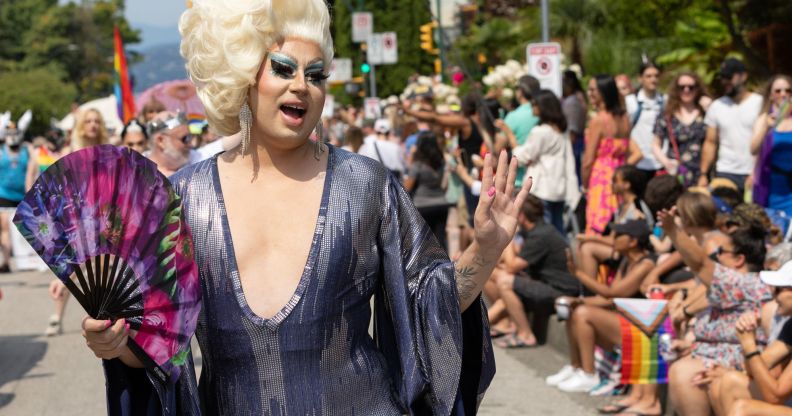Judge upholds block on Montana drag ban, saying it targets free speech

The injunction on Montana’s ‘vaguely-worded’ drag ban has been extended by a federal judge. (Getty)
LGBTQ+ Montanans have celebrated another brief win after a judge prolonged the injunction on the state’s vaguely-worded drag ban.
Federal judge Brian Morris ruled to continue blocking the enforcement of an anti-drag law after months of court proceedings, saying on Friday (13 October) that he believes the law targets free expression and free speech.
“No evidence before the court indicates that minors face any harm from drag-related events or other speech and expression critical of gender norms,” Morris wrote in his ruling.
Republican governor Greg Gianforte signed the unprecedented drag ban in May, which outrights bans drag performances – defined as performers who adopt “flamboyant” or parodic male or female caricatures – from reading books to children.
The legislation is unlike similar drag bans in US state legislatures because it explicitly prevents all forms of family-friendly drag.
A group of LGBTQ+ plaintiffs filed a lawsuit against the Montanan drag ban in July, arguing that state Republicans hadn’t “argued meaningfully” the justification for the ban.
Rachel Corcoran, a teacher in the state who dresses up during classes to help engage her students during lessons, told TIME she believed the law could be used to ban her wearing flamboyant costumes.
“I have never considered myself to be a drag queen or king, neither have my students,” Corcoran said. “If dressing up in a costume counts as that, it’s sort of like the Pictionary version of the actual art form – a very gross, crude version of drag, which entails real art, beauty and wonderfulness.”
After granting the temporary injunction in the same month, Judge Morris wrote that the Montana law was flawed because it failed to consider the literary, artistic, political or scientific value of drag.
He also stated that the law had not defined terms such as “flamboyant” or “glamorous”, creating a vagueness that could see the law being abused.
The judge wrote that the law was written to “disproportionally harm not only drag performers, but any person who falls outside traditional gender and identity norms” and would encourage “arbitrary and discriminatory enforcement”.
Activists had argued that drag performances are so loosely defined in the bill, they could ban most forms of pantomime, music concerts, Shakespearean plays and more.
According to the ACLU, there are currently 45 bills in US state capitols that ban the free speech and expression of LGBTQ+ people, including drag bans.
Seven of those bills have been passed into law, including in North Dakota and Tennessee, while 16 are currently advancing through legislatures.
Twenty-two of the bills targeting drag or other forms of LGBTQ+ expression have been defeated during House or Senate votes.

